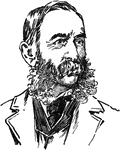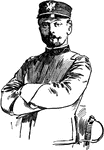
Frederick Funston
Frederick N. Funston (11 September 1865 – 19 February 1917) also known as Fred Funston, was a…
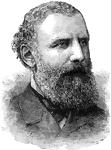
Lyman Judson Gage
Lyman Judson Gage (June 28, 1836 - January 26, 1927) was an American financier and Presidential Cabinet…
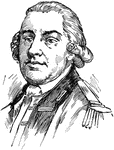
Thomas Gage
Thomas Gage (1719 - April 2, 1787) was a British general and commander in chief of the North American…
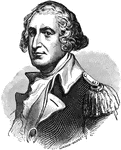
Horatio Gates
Horatio Lloyd Gates (circa 1727 - 10 April 1806) was a British soldier turned American general during…
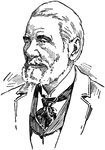
Richard Jordan Gatling
Dr. Richard Jordan Gatling (September 12, 1818 - February 26, 1903) was an American inventor best known…
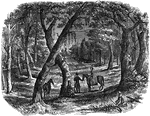
Emily Geiger's arrest
Emily Geiger rode 50 miles through British and Tory enemy territory to deliver a message to General…
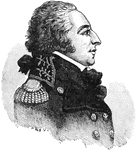
Edmond Charles Genest
Edmond-Charles Genêt (January 8, 1763 - July 14, 1834), also known as Citizen Genêt, was…

Usual Appearance of George III. About 1776 (From a sketch by Gear.)
George III (George William Frederick; 4 June 1738 - 29 January 1820) was King of Great Britain and King…
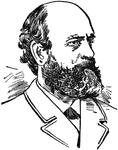
Henry George
Henry George (September 2, 1839 - October 29, 1897) was an American political economist and the most…
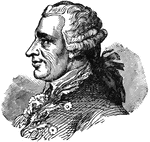
Conrad Alexandre Gérard
Conrad Alexandre Gérard de Rayneval (12 December 1729—16 April 1790), also known as Conrad…
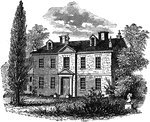
Chew's House
Benjamin Chew (November 19, 1722 – January 20, 1810) was a fifth-generation American, a Quaker-born…
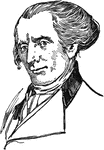
Elbridge Gerry
Elbridge Gerry was an American statesman and diplomat. As a Democratic-Republican he was selected as…

Where the Battle of Gettysburg Began
The Battle of Gettysburg (July 1-3, 1863), fought in and around the town of Gettysburg, Pennsylvania,…

Battleground of Little Round Top
Little Round Top is the smaller of two rocky hills south of Gettysburg, Pennsylvania. It was the site…

The Soldiers' Monument at Gettysburg
The monument erected to remember the soldiers who fought at the Battle of Gettysburg.
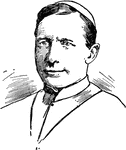
James Cardinal Gibbon
James Cardinal Gibbons (23 July 1834 - 24 March 1921) was an American prelate, the Roman Catholic Archbishop…
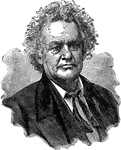
Joshua Reed Giddings
Joshua Reed Giddings (October 6, 1795 - May 27, 1864) was an American statesman prominent in the anti-slavery…
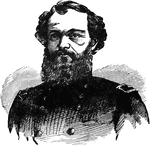
Quincy Adams Gillmore
Quincy Adams Gillmore (February 25, 1825 - April 11, 1888) was an American civil engineer, author, and…
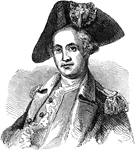
Mordecai Gist
Mordecai Gist (1743-1792) was a general who commanded the Maryland Line in the Continental Army during…
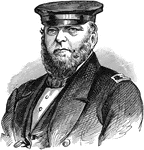
Louis Malesherbes Goldborough
Louis Malesherbes Goldsborough (February 18, 1805 - February 20, 1877) was an admiral in the United…
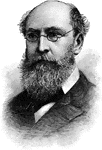
Benjamin A. Gould
Benjamin Apthorp Gould (September 27, 1824 - November 26, 1896) was a pioneering American astronomer.…
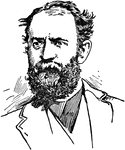
Jason "Jay" Gould
Jason "Jay" Gould (May 27, 1836 - December 2, 1892) was an American financier who became a leading American…
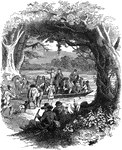
General Nathanael Greene Crossing the River Dan
Nathanael Greene was a major general of the Continental Army in the American Revolutionary War. Here…
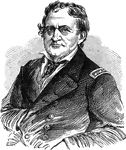
Francis Hoyt Gregory
Francis Hoyt Gregory (October 9, 1780 - October 4, 1866) was an officer in the United States Navy during…
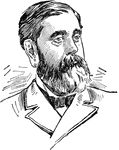
Walter Quinton Gresham
Walter Quintin Gresham (March 17, 1832 - May 28, 1895) was an American statesman and jurist.
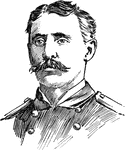
Charles Vernon Gridley
Charles Vernon Gridley (24 November 1844 - 25 May 1898) was an officer in the United States Navy during…
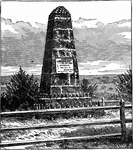
Soldiers' Monument at Groveton
A monument erected to commemorate the soldiers who fought at the Battle of Groveton, also known as the…

The Battlefield of Guilford
The Battle of Guilford Court House was a battle fought on March 15, 1781 inside the present-day city…

Foote's Gunboat Flotilla in 1862
USS Pittsburgh (1861) was a City class ironclad gunboat constructed for the Union Navy during…
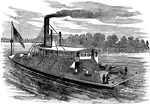
The New Era
USS New Era (1862) was a steamer acquired by the Union Navy during the American Civil War.…

The Louisiana
The second USS Louisiana was a propeller-driven iron hull steamer in the United States Navy…
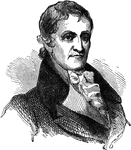
Joseph Habersham
Joseph Habersham (July 28, 1751 - November 17, 1815) was an American businessman, Georgia politician,…

Edward Everett Hale
Edward Everett Hale (April 3, 1822 - June 10, 1909) was an American author and Unitarian clergyman.
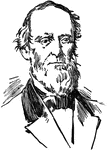
Fitz-Greene Halleck
Fitz-Greene Halleck (July 8,1790 - November 19, 1867) was an American poet, born and died at Guilford,…
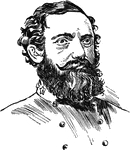
Wade Hampton III
Wade Hampton III (March 28, 1818 - April 11, 1902) was a Confederate cavalry leader during the American…
![John Hancock (January 23 1737 [O.S. January 12, 1736] - October 8, 1793) was a Massachusetts merchant and prominent patriot of the American Revolution, but is most famous for his prominent signature on the United States Declaration of Independence.](https://etc.usf.edu/clipart/55900/55976/55976_hancock_john_mth.gif)
John Hancock
John Hancock (January 23 1737 [O.S. January 12, 1736] - October 8, 1793) was a Massachusetts merchant…
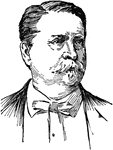
Winfield Scott Hancock
Winfield Scott Hancock (February 14, 1824 - February 9, 1886) was a career U.S. Army officer and the…
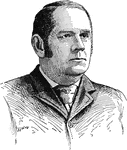
Marcus Alonzo Hanna
Marcus Alonzo Hanna (September 24, 1837 - February 15, 1904), best known as Mark Hanna, was an American…

View of Harper's Ferry, 1862, Looking South
The town of Harper's Ferry, where an important Civil War battle was fought in 1862.

Burning of the Arsenal at Harper's Ferry
The burning of the arsenal in Harper's Ferry during the American Civil War
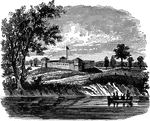
Fort Harrison, on the Wabash
Fort Harrison was an important component of the Confederate defenses of Richmond during the American…
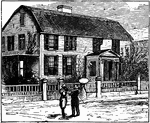
Bishop Seabury's House, Springfield, CT
Samuel Seabury graduated from Yale in 1748; studied theology with his father; studied medicine in Edinburgh…
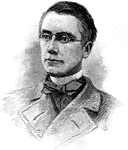
Morgan Dix
Morgan Dix (born November 1, 1827 in New York City; died April 29, 1908) was an American priest, "divine"…
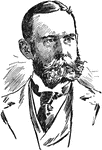
John Milton Hay
John Milton Hay (October 8, 1838 - July 1, 1905) was an American statesman, diplomat, author, journalist,…
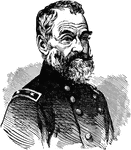
Samuel Peter Heintzelman
Samuel Peter Heintzelman (September 30, 1805 - May 1, 1880) was a United States Army General. He served…
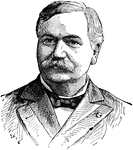
David Bremner Henderson
David Bremner Henderson (March 14, 1840 - February 25, 1906) was an American politician of the 1890s…
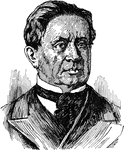
Joseph Henry
Joseph Henry (December 17, 1797 - May 13, 1878) was an American scientist who served as the first Secretary…
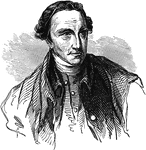
Patrick Henry
Patrick Henry (May 29, 1736 - June 6, 1799) was a prominent figure in the American Revolution, known…
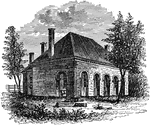
Hanover Courthouse
Hanover County Courthouse is the place where Patrick Henry practiced law and argued the case accusing…

Statue of Patrick Henry at Richmond, VA
Statue of Patrick Henry, American Revolutionary, in Richmond, Virginia.
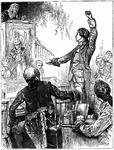
Henry, Patrick, Give me liberty or give me death!
A drawing of Virginia Convention in 1775, at St. John's Church in Richmond, Virginia, when Patrick Henry…
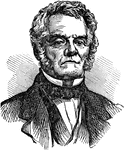
Thomas Holliday Hicks
Thomas Holliday Hicks (September 2, 1798 - February 14, 1865) was an American politician from Maryland.…
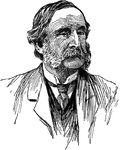
Thomas Wentworth Higginson
Thomas Wentworth Higginson (December 22, 1823 - May 9, 1911) was an American minister, author, abolitionist,…
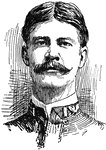
Richmond Pearson Hobson
Richmond Pearson Hobson (17 August 1870 - 16 March 1937) was a United States Navy Rear Admiral who served…
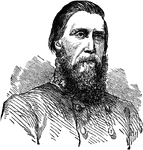
John Bell Hood
John Bell Hood (June 1 or June 29, 1831 - August 30, 1879) was a Confederate general during the American…
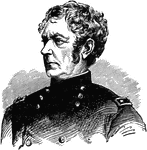
Joseph Hooker
Joseph Hooker (November 13, 1814 - October 31, 1879) was a career United States Army officer, fought…
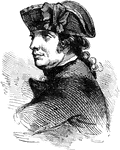
Esek Hopkins
Esek Hopkins (26 April 1718 - 26 February 1802), was Commander in Chief of the Fleet throughout the…
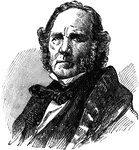
Samuel Houston
Samuel Houston (March 2, 1793 - July 26, 1863) was a 19th century American statesman, politician, and…
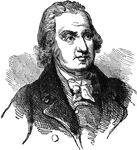
John Eager Howard
John Eager Howard (June 4, 1752 - October 12, 1827) was an American soldier and Senator from Maryland…
